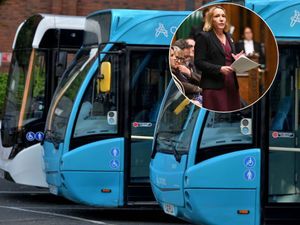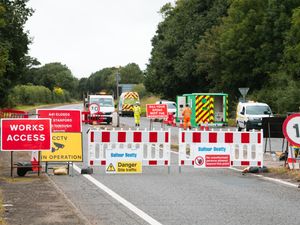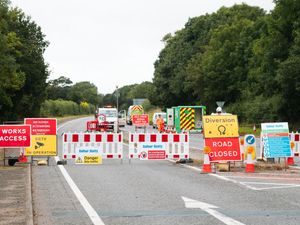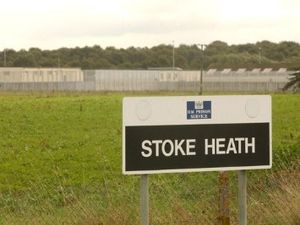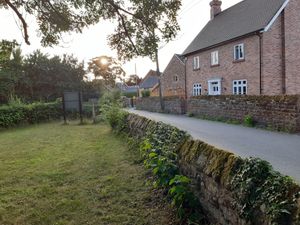Bravery honours for county base troops
Three soldiers from a north Shropshire-based Army regiment have collected bravery medals from the Queen.
Three soldiers from a north Shropshire-based Army regiment have collected bravery medals from the Queen.
The Royal Irish Regiment soldiers, based at Tern Hill, received the Conspicuous Gallantry Cross - one level down from the Victoria Cross - yesterday.
The men's citations were scrutinised and cleared after their senior officer Major Robert Armstrong was arrested for allegedly "grossly exaggerating" his own heroics in Afghanistan.
Corporal Robert McClurg, 23, was awarded his CGC for his "calm and selfless leadership style".
Acting Sergeant Alwyn Stevens, 30, displayed "extraordinary courage" while working with an Afghan National Army platoon.
Lance Corporal Jone Toge, 28, extracted four wounded soldiers from a "killing area" after a rocket-propelled grenade strike.
Brigadier James Chiswell MC, commander of 16 Air Assault Brigade, said: "The award of three CGCs to a battalion is unprecedented."
He added: "They reflect exceptional acts of individual heroism in Helmand last summer."
Caution
It was revealed yesterday that weapons and ammunition were found at the home of Major Armstrong.
Major Armstrong, 35, of the Royal Artillery, was awarded a Military Cross in March for "consistent bravery and inspirational leadership" in Afghanistan.
But last month he was arrested by the Royal Military Police and interviewed under caution after another soldier made claims about "overblown" narrative in a medal citation.
The weapons were discovered after a tip-off.
They included an AK47 rifle and several handguns in working order with live ammunition, according to reports.
Major Armstrong was attached to the Tern Hill-based 1st Battalion The Royal Irish Regiment in Helmand Province in southern Afghanistan last year.
Lieutenant Colonel Ed Freely, commanding officer of the 1st Battalion of the Royal Irish Regiment, was arrested and questioned as part of the inquiry about the medal citations but was released without charge.
It is thought to be the first time in more than 300 years of British military history that an inquiry has been set up into how gallantry medals have been awarded.
By Deborah Collins

